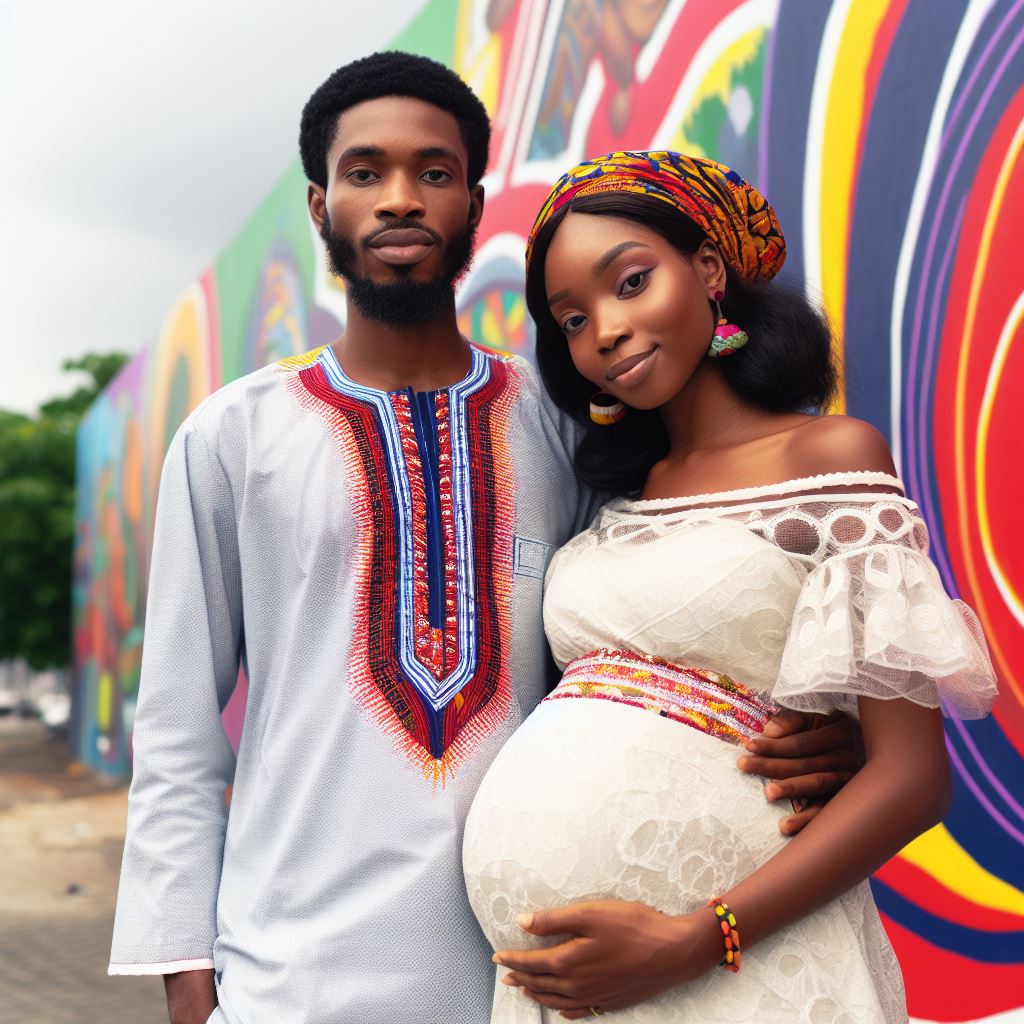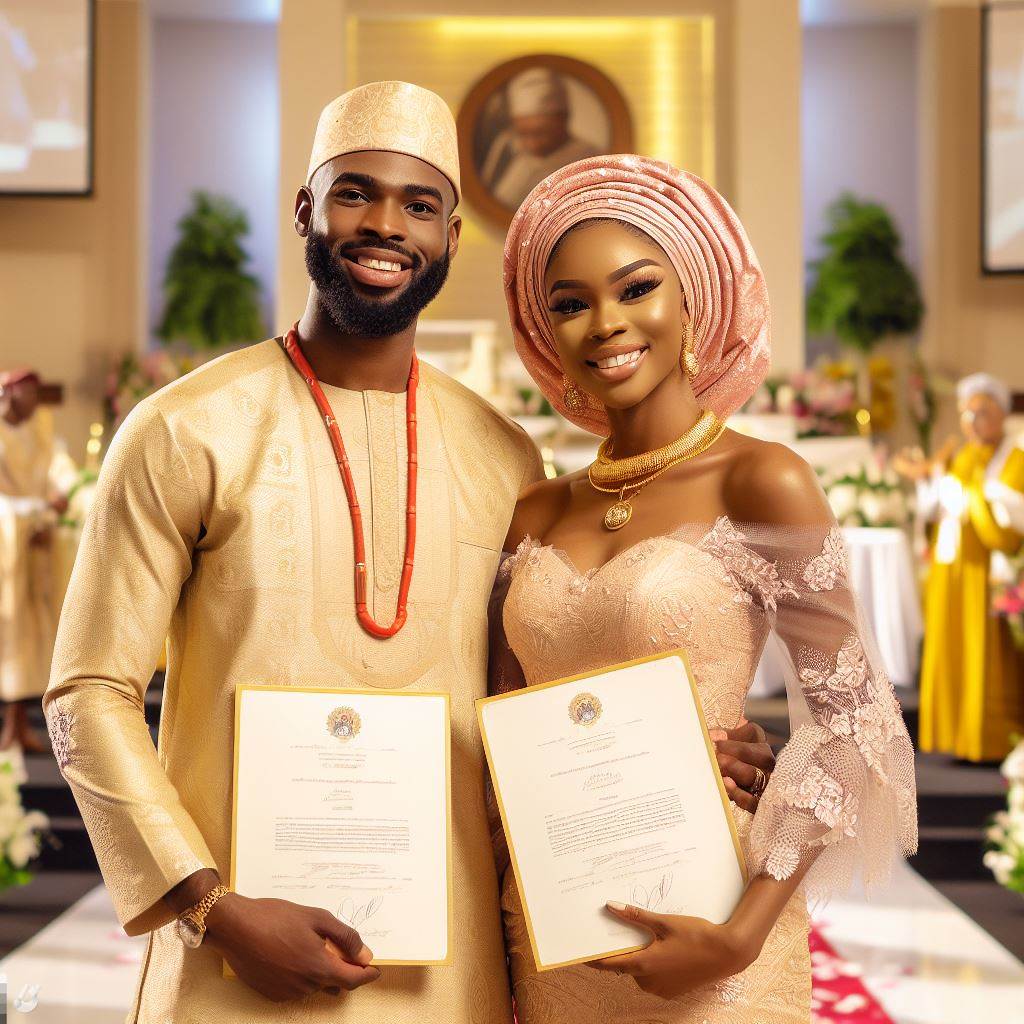Introduction
Debunking myths regarding blood groups and personality traits in Nigeria.
Blood groups and personality traits have long been a subject of misconception and myths in Nigeria.
- It is crucial to address these misconceptions and provide accurate information to dispel the unfounded beliefs that are prevalent in society.
- Misconceptions and myths surrounding blood groups and personality traits can have a significant impact on individuals’ lives.
- It can influence their relationships, career choices, and even their self-perception. Therefore, it is important to debunk these myths and provide the correct information to help people make informed decisions.
- Nigeria, like many other countries, is culturally diverse with various ethnic groups and beliefs. These diversity and cultural influences have contributed to the formation of myths and stereotypes regarding blood groups and personality traits.
- Some people believe that individuals with certain blood groups possess specific characteristics such as being introverted, extroverted, or even aggressive.
- However, scientific research has consistently shown that there is no empirical evidence linking blood groups with specific personality traits.
- Antigens on red blood cells determine blood groups, with no correlation to an individual’s character or behavior.
The importance of addressing these misconceptions and providing accurate information.
By debunking these myths, we can help break the cycle of misconceptions and promote a more accurate understanding of blood groups and personality traits in Nigeria.
This will encourage individuals to make decisions based on rationality and personal qualities rather than relying on unfounded beliefs.
In the upcoming sections, we will delve deeper into specific myths and misconceptions surrounding blood groups and personality traits in Nigeria.
By providing accurate information and highlighting scientific evidence, we aim to dispel these myths and contribute to a more informed and rational society.
Together, let us unravel the truth behind these misconceptions and promote a better understanding of ourselves and others.
Blood Groups and Personality Traits in Nigeria
Common belief among Nigerians that blood groups have a significant influence on personality traits
There is a common belief among Nigerians that blood groups have a significant influence on personality traits.
This belief has been passed down through generations and is deeply ingrained in Nigerian culture.
While there is no scientific evidence to support these claims, many Nigerians continue to strongly believe in them.
Different blood groups and their perceived personality stereotypes
- In Nigeria, the four main blood groups are A, B, AB, and O, each with their own perceived personality stereotypes. These stereotypes are often based on generalizations and lack any scientific validity. However, they continue to thrive in Nigerian society.
- Individuals with blood group A are often perceived as calm, patient, and reliable, demonstrating sensitivity, organization, and attention to detail. This stereotype has led many Nigerians to view individuals with blood group A as suitable for professions such as teaching and healthcare.
- Individuals with blood group B are often perceived as outgoing, creative, and flexible, with a charismatic personality and leadership skills. Many Nigerians also believe that those with blood group B have a strong entrepreneurial spirit and excel in business ventures.
- People often perceive individuals with blood group AB as unique and mysterious, possessing a blend of traits from groups A and B, making them adaptable and empathetic. Nigerians tend to view people with blood group AB as open-minded individuals who can easily relate to others.
- Finally, people often regard individuals with blood group O as confident and assertive, seen as natural-born leaders who handle pressure well. Nigerians often view those with blood group O as self-reliant and decisive individuals who are not afraid to take risks.
Widespread acceptance of these beliefs in Nigerian culture
These beliefs surrounding blood groups and personality traits have found widespread acceptance in Nigerian culture.
- Many Nigerians consider a person’s blood group during matchmaking or when assessing potential employees.
- People consider blood type compatibility when forming relationships, believing certain blood groups are more compatible than others.
- While these beliefs may seem harmless, it is crucial to recognize that they are not supported by scientific evidence.
- Each individual is unique and their personality is shaped by a multitude of factors, including upbringing, environment, and personal experiences.
- It is important to avoid generalizations based on blood groups and instead focus on understanding individuals as complex beings.
In summary, the belief that blood groups have a significant influence on personality traits is deeply rooted in Nigerian culture.
Despite the lack of scientific evidence, Nigerians continue to hold onto these stereotypes.
It is important to approach these beliefs with an open mind and recognize the diversity and complexity of individual personalities.
Read: Steps to Ensure Genotype Compatibility Before Tying the Knot
Understanding Blood Groups
Different Blood Groups (A, B, AB, and O) and Their Characteristics
- Blood group A individuals have A antigens on the surface of their red blood cells.
- Blood group B individuals have B antigens on the surface of their red blood cells.
- Blood group AB individuals have both A and B antigens on the surface of their red blood cells.
- Blood group O individuals have neither A nor B antigens on the surface of their red blood cells.
Inheritance Patterns of Blood Groups and Genetics
- Blood group inheritance is determined by a combination of both parents’ blood types.
- The ABO gene has three alleles: A, B, and O, where A and B are codominant, and O is recessive.
- The child inherits one allele from each parent, resulting in various blood group combinations.
Blood Groups and Their Limited Influence on Personality Traits
- Scientific studies have shown limited evidence linking blood groups to personality traits.
- Blood groups primarily determine compatibility for blood transfusions, not personality traits.
- Personality traits are believed to be influenced by various factors such as genes, environment, and individual experiences.
Read: Exploring the Four Main Blood Groups: A, B, AB, and O
Personality Traits
When it comes to blood groups and personality traits, there are several common traits associated with each blood group.
However, it is important to note that personality traits are influenced by various factors, including genetics, environment, upbringing, and individual experiences.
While blood groups may play a role in shaping certain traits, it is essential to avoid generalizing or stereotyping individuals based solely on their blood group.
Common personality traits associated with each blood group
1. A
- Individuals with blood group A are often described as cooperative, sensitive, and sincere.
- They tend to be responsible, organized, and prefer a structured way of life.
- While they may appear reserved and shy at first, they are known to be thoughtful and considerate.
- However, it is crucial to remember that personality traits vary among individuals with the same blood group.
2. B
- People with blood group B are often characterized as outgoing, creative, and adaptable.
- Frequently labeled as independent and self-reliant, they have a seemingly strong sense of individuality.
- They enjoy taking risks, embracing new challenges, and are inclined to think outside the box.
- Yet, it is vital to recognize that personality traits cannot be solely determined by blood group.
3. AB
- Individuals with blood group AB are commonly seen as rational, calm, and balanced.
- They possess qualities of both blood groups A and B, resulting in an integration of personality traits.
- Sometimes referred to as the “universal recipient,” they often exhibit adaptability and empathy.
- Nevertheless, it is crucial to avoid assuming a person’s whole character based solely on their blood group.
4. O
- People with blood group O are frequently described as confident, decisive, and ambitious.
- They tend to exhibit strong leadership skills and are known for their practicality and assertiveness.
- They are often seen as reliable team players and enjoy being in control of situations.
- However, it is important to remember that personality goes beyond just blood group classifications.
Attributing personality traits solely to blood groups is misleading.
Blood groups offer limited insights; personality is shaped by diverse factors.
Genetics, environment, upbringing, and individual experiences all play significant roles in shaping one’s personality.
It is essential to avoid generalizing or stereotyping individuals based solely on their blood group.
Each person is unique, and it is unfair to make assumptions or judgments solely based on their blood group.
Embracing diversity and recognizing the complexity of human personality will lead to a more inclusive and understanding society.
Read: The Role of Blood Groups in Pregnancy and Transfusions

Scientific Research
In recent times, there have been numerous claims about the relationship between blood groups and personality traits in Nigeria.
Many individuals believe that certain blood groups are associated with specific personality characteristics.
However, scientific studies and research findings have consistently debunked these myths.
Lack of Correlation
- Several scientific studies conducted in Nigeria have found no evidence of a significant correlation between blood groups and personality traits.
- Researchers have analyzed data from large sample sizes, including individuals from various blood groups, and consistently found no discernible patterns or correlations.
- These studies are based on rigorous scientific methodologies and statistical analyses, making their findings reliable and credible.
Flaws in Previous Studies
- In the past, some studies exploring the relationship between blood groups and personality traits in Nigeria lacked proper controls and had small sample sizes.
- These limitations may have led to skewed results, with findings that were not representative of the entire population.
- Additionally, several early studies failed to consider confounding variables that could influence personality traits, such as socio-economic status or cultural influences.
Complexity of Personality Traits
- Personality traits are multidimensional and influenced by a multitude of factors, including genetics, environment, upbringing, and personal experiences.
- Attempting to predict or attribute personality traits solely based on blood groups oversimplifies the complexity of human behavior.
- Blood type alone cannot accurately determine personality; it’s a unique blend of various characteristics shaped by diverse factors.
Misinterpreted Traits
- Some of the myths surrounding blood groups and personality traits in Nigeria may have arisen due to misinterpretations or cultural biases.
- Individuals may attribute certain characteristics to specific blood groups based on personal anecdotes or stereotypes.
- Word of mouth perpetuates these misconceptions, sustaining the belief in unfounded correlations.
Focus on Individual Differences
- It is crucial to recognize and respect the uniqueness and individuality of every person, irrespective of their blood group.
- Personality traits vary vastly among individuals within the same blood group, highlighting the importance of considering each person on their own merit.
- Judging individuals solely by their blood group lacks scientific basis and can foster unfair stereotypes and discrimination.
To summarize, scientific research consistently disproves the correlation between blood groups and personality traits in Nigeria.
The limitations and flaws in previous studies, as well as the complexity of personality traits themselves, make it clear that blood group alone cannot accurately predict or determine an individual’s personality.
It is crucial to rely on rigorous scientific studies and avoid perpetuating myths that can lead to unfair judgments and biases.
Read: Preventing Sickle Cell Disease: A Guide for Prospective Couples
Promoting Understanding and Acceptance
In Nigeria, there are numerous myths and misconceptions surrounding blood groups and their connection to personality traits.
These widespread beliefs have led to stereotypes and discrimination based on an individual’s blood type.
However, it is essential to debunk these myths and promote understanding and acceptance among people.
Questioning Common Myths and Misconceptions
- The first step toward promoting understanding is encouraging readers to question and challenge the common myths associated with blood groups and personality traits. It is crucial to highlight the lack of scientific evidence supporting these ideas.
- For instance, one common myth suggests that individuals with type O blood are natural-born leaders and extroverts.
- However, there is no scientific backing to support this claim. Personality traits are complex and influenced by various factors, not just blood type.
- Challenging these myths reveals that using blood groups to assess personality traits is baseless and unjust.
Acceptance Regardless of Blood Group
- Another crucial point to emphasize is the importance of accepting people for who they are, regardless of their blood group or perceived personality stereotypes.
- Do not judge or discriminate based on blood type. Each person’s uniqueness should not be tied to a non-scientific factor.
- Acceptance plays a significant role in creating an inclusive society where everyone feels valued and respected. By accepting people irrespective of their blood groups, we can foster unity and promote a sense of belonging.
Education and Accurate Scientific Information
- One effective way to combat these prevailing myths is through education and the promotion of accurate scientific information.
- By providing people with access to reliable resources and teaching them about the scientific understanding of blood groups and personality traits, we can eradicate misconceptions.
- Schools, media platforms, and public health organizations should take the lead in educating the public about the science behind blood types. This includes providing information about genetic inheritance, blood compatibility for transfusions, and dispelling false beliefs about personality traits.
- By spreading accurate knowledge, individuals can make informed decisions and avoid perpetuating stereotypes or discriminating against others based on their blood type.
The Benefits of Debunking Myths
- Debunking myths about blood groups and personality traits has several advantages for individuals and society as a whole.
- First, it promotes fairness and equality. People should be judged on their actions, character, and abilities rather than predetermined assumptions based on their blood type.
- Secondly, debunking these myths fosters understanding among individuals. It encourages people to appreciate that personal traits are a culmination of various factors and cannot be simplified to a single biological aspect.
- Finally, debunking these myths creates a more harmonious society. When people stop believing in false stereotypes, they are more likely to accept and understand each other, breaking down barriers and fostering empathy.
In summary, debunking myths surrounding blood groups and personality traits is crucial for promoting understanding and acceptance in Nigeria.
By encouraging individuals to question and challenge these common misconceptions, emphasizing the importance of accepting people regardless of their blood type, and advocating for education and accurate scientific information, we can build a society that values diversity and appreciates individuals for who they truly are.
Conclusion
Recap the debunked myths regarding blood groups and personality traits in Nigeria
Throughout this section, we have debunked several myths regarding blood groups and personality traits in Nigeria.
It is important to reiterate the key points as we conclude.
- The idea that specific personality traits are linked to certain blood groups is unfounded, first and foremost.
- Various factors, such as genetics, environment, upbringing, and personal experiences, influence personality traits, as highlighted.
- Disregard claims connecting blood groups and personality traits; they lack scientific evidence.
The need for critical thinking and relying on scientific evidence rather than outdated beliefs
- Emphasize critical thinking. Rely on scientific evidence consistently for informed decision-making.
- Discard outdated beliefs. Embrace accurate information backed by rigorous research.
Encourage readers to spread accurate information, celebrate diversity, and promote a more inclusive society.
- By spreading accurate information and debunking myths, we can contribute to a more informed and enlightened society.
- As a society, we should strive to celebrate diversity and promote inclusivity, recognizing that each individual is unique regardless of their blood group.
- Let us move away from perpetuating outdated and baseless beliefs, and embrace a more rational and scientific approach.
- It is only through critical thinking that we can truly understand ourselves and others, fostering a harmonious and inclusive society.




